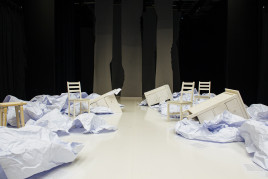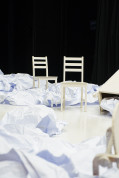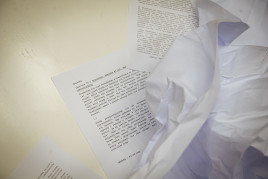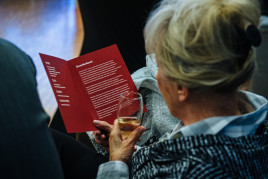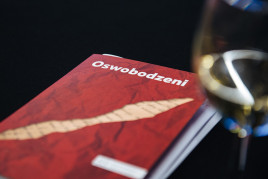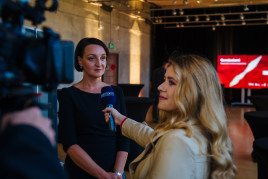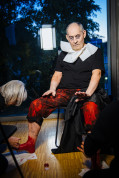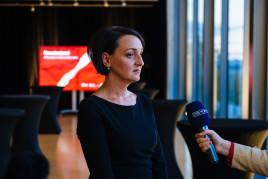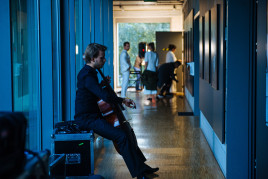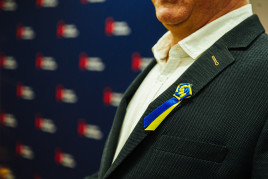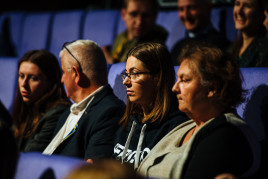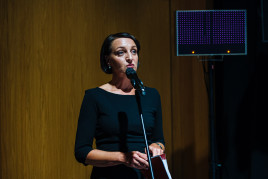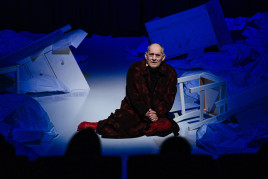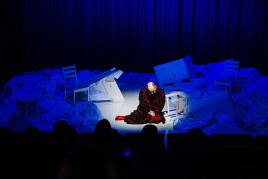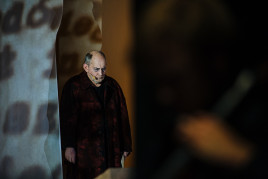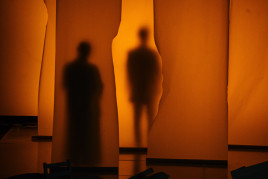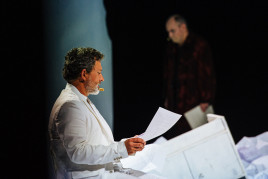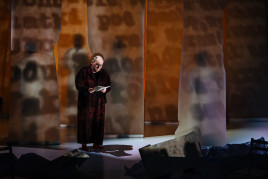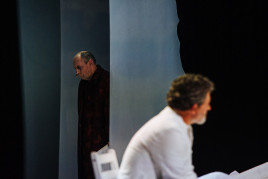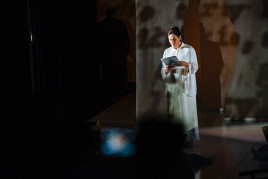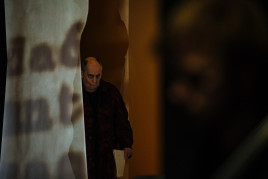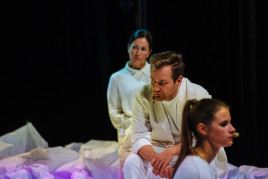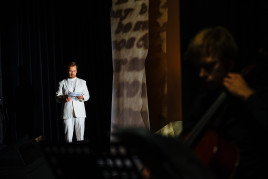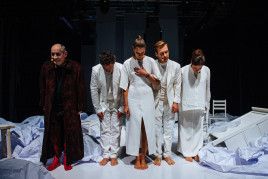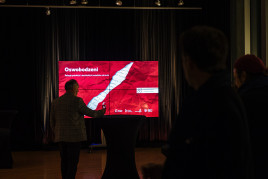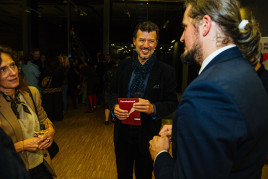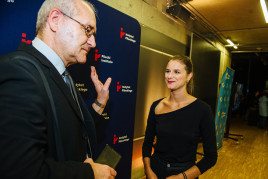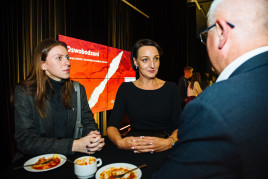THE LIBERATED | a theatrical play - Instytut Pileckiego
“The Liberated” is a new theater performance developed by the Pilecki Institute to commemorate the 83rd anniversary of the military aggression of the USSR against Poland.
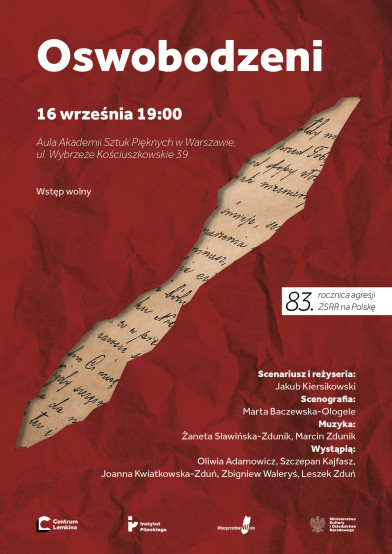
The title of the play, prepared by the Pilecki Institute to commemorate the 83rd anniversary of the military aggression of the USSR against Poland, is an ironic reference to the historical and contemporary narratives of the Russian aggressor, who invariably justifies his crossing of borders of sovereign states and violation of peace treaties by the necessity of aiding or indeed rescuing the civilians living in the invaded territories. The actual nature of this assistance is brought out by contemporary accounts of Ukrainian citizens – witnesses to Russian crimes – which have been collected by the Lemkin Center, and by the archival accounts of soldiers of Anders’ Army and civilian Polish victims of Soviet totalitarianism. Present-day stories describing the atrocities of a war that is unfolding right before our eyes, just across Poland’s eastern border, interspersed with those depicting deportations, gulags, NKVD prisons and wanderings across the inhuman Soviet land, demonstrate a clear analogy between the Polish and Ukrainian experience. They also lay the foundation for an in-depth reflection on the similarities between Russia’s tragic and devastating attacks on sovereign states. This is the long ignored and marginalized voice of the citizens of the nations of Central and Eastern Europe.
200 days of war in Ukraine have yielded a rich harvest of testimonies exposing Russian crimes, in which unbridled brutality comes face to face with the defenselessness of the civilian population, stripped of all rights and deprived of conditions that would give it any chance of survival, stated Jakub Kiersikowski, the director of the play and author of the script, talking to PAP.
From these accounts there has emerged a picture of a premeditated Russian invasion, focused on the deliberate destruction of the Ukrainian people, he added.
Because the Pilecki Institute, in addition to archiving and analyzing the history of Soviet totalitarianism, is systematically documenting the ongoing war through its Lemkin Center, I was able to grasp the proximity of the experiences of two nations subjected to Russian aggression – their ordeals of death, humiliation, and violation – as something even more powerful and vivid, which ultimately evolved into a clear and unquestionable imperative to commence a dialog between historical and contemporary events. Having in mind the content of the testimonies of Anders’ soldiers, which form an integral part of our Archive, I felt compelled to present the tragedy of the Ukrainian people in the context of the deportations, gulags, NKVD prisons and wanderings across the inhuman Soviet land, said Kiersikowski talking to PAP.
The “liberated” of the title were witnesses to the Russian aggression, and during the performance their heartbreaking accounts were read out by eminent Polish actors. The event was accompanied by live music and the poetry of Zbigniew Herbert.
Participating performers:
Oliwia Adamowicz
Szczepan Kajfasz
Joanna Kwiatkowska-Zduń
Zbigniew Waleryś
Leszek Zduń
Music: Marcin Zdunik, Żaneta Sławińska-Zdunik
Stage design: Marta Baczewska-Ologele
Written and directed by: Jakub Kiersikowski
The performance was held on 16 September at the seat of the Warsaw Academy of Fine Arts, at 39 Wybrzeże Kościuszkowskie Street.
This was yet another presentation of selected wartime testimonies from Ukraine, originally submitted by eyewitnesses to Russian crimes before the Raphael Lemkin Center for Documenting Russian Crimes in Ukraine – a body established by the Pilecki Institute shortly after the Russian invasion of 24 February 2022, and a world leader in the collection of testimonies documenting Russian crimes.
Similar stagings of Ukrainian accounts have already been held twice in Warsaw, on 25 May and 23 August. Importantly, they can also be viewed by foreign audiences: the first performance outside Poland was held on 30 August in Kiev, while the next will take place on 21 September at 6 p.m. on the small stage of Lviv’s Lesia Theatre.
Members of the diplomatic corps, representatives of the Ukrainian and Belorussian diaspora, and academics have all been invited. The event has an international scope, and will be translated into Ukrainian and English.
See also
- Oppositional Engagement of Women in Authoritarian and Totalitarian Systems of the 20th Century: Poland in a Comparative European Perspective (1919–1989)
conference
Oppositional Engagement of Women in Authoritarian and Totalitarian Systems of the 20th Century: Poland in a Comparative European Perspective (1919–1989)
We invite scholars to participate in an international academic conference devoted to various forms of activity undertaken by women who engaged in opposition and dissent under authoritarian and totalitarian rule in the 20th century.
- CALL FOR PAPERS: Oppositional Engagement of Women in Authoritarian and Totalitarian Systems of the 20th Century: Poland in a Comparative European Perspective (1919–1989)
conference
CALL FOR PAPERS: Oppositional Engagement of Women in Authoritarian and Totalitarian Systems of the 20th Century: Poland in a Comparative European Perspective (1919–1989)
We invite scholars to participate in an international academic conference devoted to various forms of activity undertaken by women who engaged in opposition and dissent under authoritarian and totalitarian rule in the 20th century.
- Pilecki Institute International Teachers and Educators Program 5th edition. Post-war decade. | Call for participants
project
Pilecki Institute International Teachers and Educators Program 5th edition. Post-war decade. | Call for participants
Recruitment for the fifth edition of the Pilecki Institute International Teachers and Educators Program has begun. We invite teachers and educators from around the world to participate in the online conference. This year, we are focusing on the history of
